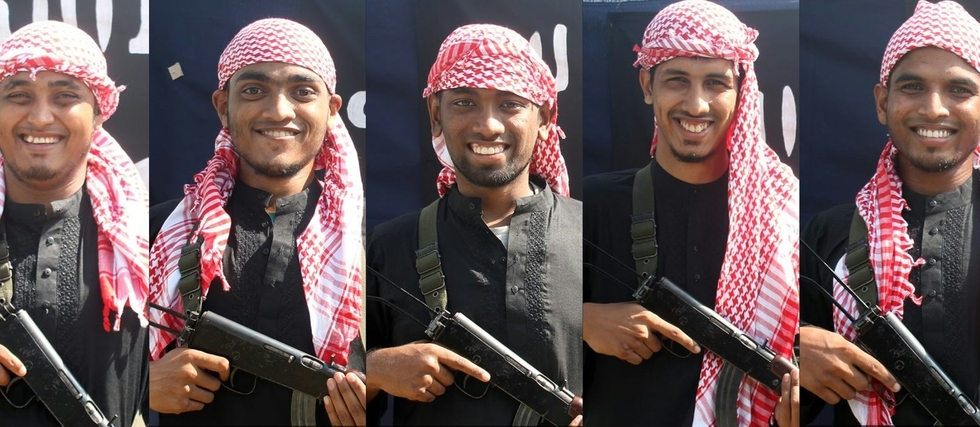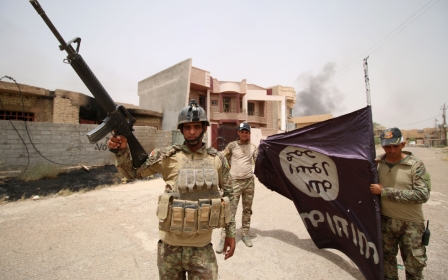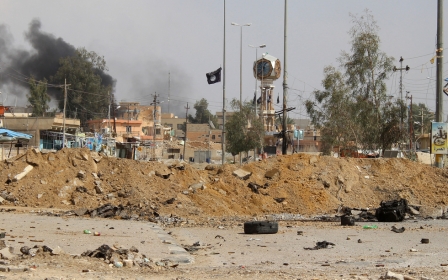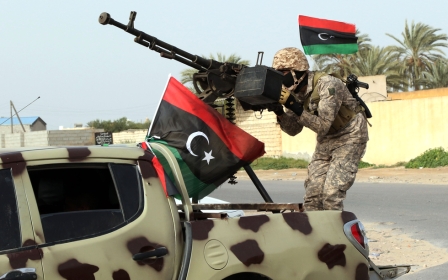Dhaka's IS attack: Oppression, poverty and tyranny breeds terror

When I heard the news of a gun attack in Dhaka last Friday by the self-professed Islamic State (IS), my immediate thought was that Bangladesh had reached a boiling point. Being of Bangladeshi origin, I have visited the “motherland” on numerous occasions. My last visit was in 2012, and the political situation in Sylhet, where more than 90 per cent of British Bangladeshis originate from, was volatile.
Unemployment was soaring; poverty had become an accepted reality for millions, and frustration with the autocratic regime of Prime Minister Sheikh Hasina had manifested itself into violent street brawls and strikes. Bangladesh is no stranger to political violence. Hundreds of thousands of Bangladeshis lost their lives during the independence war with Pakistan in 1971, and since then, the country has become somewhat desensitised to violence.
In an audio tape released in February 2014, the supreme leader of al-Qaeda, Dr Ayman al Zawahiri, urged the Muslims of Bangladesh to rise up against the secular dictatorship of Sheikh Hasina. His words and intentions were clear – the dream of an independent Bangladeshi nation which would safeguard the rights of Islam and Muslims had failed – and an armed insurrection against the Hasina regime was the only path to true liberation.
Whilst numerous Islamic political parties and movements in Bangladesh denounced al-Qaeda’s methodology and Zawahiri’s call to arms, the idea that a more public role of Islam in society as a solution was not an alien concept.
In fact, groups like Jamaat-e-Islam, Hefazot-e-Islam, Tablighi Jamat, and more recently Hizb ut-Tahir, have all voiced this in their own respective ways. But fast forward two years, how did Bangladesh reach a point where 22 people – mainly foreign workers - were slaughtered in one of the most secure areas of the capital city by IS-linked militants?
Rest assured that this heinous crime did not occur in a vacuum. Rather, it had all the social, economical and political prerequisites that usually give birth to groups like IS, and it had been brewing for decades.
Tyranny of the Hasina regime
We have seen for ourselves, real life case studies where political instability, secular dictatorships, western wars and economic regression has created the perfect environment for violent reactionary groups to not only breed, but gain support from some segments of society out of desperation.
This has arguably been the case with IS in Iraq, Syria and Libya, and with al-Qaeda in Pakistan, Yemen and Somalia. Bangladesh is not that far off from the aforementioned countries from a political and economical perspective. Unemployment is sky high, corruption across all levels of society is an accepted norm, poverty is the reality for majority of the rural and suburban population, but most importantly – the Hasina regime’s stifling of religious and political freedoms has been worsening as years pass.
Sheikh Hasina has enjoyed nearly 13 years of power in the country’s alternating two-party political system with the Bangladesh Nationalist Party (BNP) led by Khaleda Zia. Her premiership has been noted as perhaps the most oppressive and violent since the country’s independence from Pakistan.
Her crusade against “political Islam” and Jamaat-e-Islam specifically, has shown that Hasina is neither secretive nor ashamed of her brutal crackdown of Islamic groups of various colours and stripes. This is personified in the high-profile executions of senior Jamaat-e-Islami leaders for alleged crimes committed during the Independence War – rulings that were handed down in the politically driven International Crimes Tribunal (ICT).
In addition to her extrajudicial assassinations of political opponents via the ICT, on 5 May 2013, the Hasina regime carried out one of the coldest mass murders since the independence war – the Motijheel massacre. Thousands of peaceful protestors belonging to the apolitical Hefazot-e-Islam movement gathered in the financial district of Shapla Square to protest against Hasina’s secular reforms to the constitution. The sit-in protestors were given a deadline by the authorities to evacuate the square by nightfall – which sadly resulted in the horrific slaughter of hundreds of unarmed protestors during the night – whose bodies were later buried in mass graves by sunrise. This was Bangladesh’s equivalent to Egypt’s Rabaa al-Adawiya massacre, and perhaps one of the darkest chapters in the country’s history.
Conveyor belt to violence
You may be wondering why all of this is relevant to last week’s IS-inspired gun attack in Dhaka. I would have thought this was glaringly obvious by now. As mentioned earlier, we have witnessed with our very own eyes how anti-regime violence became a viable option in the Arab world when censorship of religious and political freedom could no longer be tolerated. When moderate Islamic voices were stifled and the riches of a country were monopolised by the ruling elite.
Was this not the moral justification that sparked what was once known as the “Arab Spring”? When Muammar Gaddafi and Bashar al-Assad turned their guns on their own people for peacefully protesting against the decades of state oppression, that was when the people responded with violence in self-defence. I also recall that it was only after the removal of Egypt’s first democratically elected president, and the subsequent crackdown of the Muslim Brotherhood, did we see IS rear its ugly head in the Sinai.
So taking all this into consideration, political analysts and journalists alike must understand that history and recent events have consistently proven that where poverty, unemployment and censorship of religion is rife, violent reactionary groups like IS will not only fill the political vacuum, but could thrive and continue to do so in different shapes and forms.
The unfortunate reality is that violence begets violence – and mindless barbarity becomes a viable and attractive option for some when years of oppression under secular dictatorships fail to deliver on the “fruits” of democracy.
Whilst the despicable crimes of the IS-linked criminals is unequivocally against any Islamic principles of warfare, it is an undeniable fact that Sheikh Hasina's continuous oppression of non-violent Islamic groups has led to an ultra-fringe minority resorting to violence; and it is not a far-fetched possibility for this to snowball into a Syria-type civil war between the Hasina regime and the many factions that vehemently oppose it.
- Dilly Hussain is the deputy editor of British Muslim news site 5Pillars. He also writes for the Huffington Post, Al Jazeera English, and contributes to the Foreign Policy Journal and Ceasefire Magazine. He regularly appears on Islam Channel, Russia Today, and BBC TV and radio discussing Middle East and North African politics, British foreign policy, Islamophobia and the war on terror. Follow him on Twitter @dillyhussain88
The views expressed in this article belong to the author and do not necessarily reflect the editorial policy of Middle East Eye.
Photo: A combination of pictures done with photos released by the Bangladesh branch of the Islamic State group shows five men, allegedly the gunmen who carried out an attack in the capital Dhaka on 1 July, 2016 (AFP).
New MEE newsletter: Jerusalem Dispatch
Sign up to get the latest insights and analysis on Israel-Palestine, alongside Turkey Unpacked and other MEE newsletters
Middle East Eye delivers independent and unrivalled coverage and analysis of the Middle East, North Africa and beyond. To learn more about republishing this content and the associated fees, please fill out this form. More about MEE can be found here.





